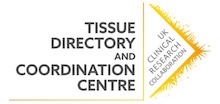The immortal life of Henrietta Lacks
Today, samples donated for medical research are anonymised so that any work performed on them cannot be traced back to the donor. But donation for research has not always worked like this. In 1951, tumour cells from a patient in the USA were grown and sent all over the world, later to be traced back to her and her family. We discuss the implications of this here.
Prior to the 1950's, scientists were unable to grow human cells in a laboratory, despite trying for many years. Then one day George Otto Gey, a physician and cancer researcher at Johns Hopkins Hospital, received a tumour sample from a woman with cervical cancer. This one tumour sample went on to change the way medical research operated as it continued to grown in a lab dish (in vitro). Find out more about what these 'HeLa' cells achieved in this video:
What was wrong about using Mrs. Lacks cells for research?
No one had ill intentions when they began to experiment on the cells. But the fact remains that consent was not sought from Mrs. Lacks to use the cells for research. In addition to no consent being sought, the cells were not properly anonymised meaning that someone was able to trace the cells back to Henrietta Lacks.
What are the implications of this lack of anonymisation?
In the 1970's (20 years after the initial donation), researchers realised that many types of lab grown cell lines were becoming contaminated so that they were a mixture of cells. In order to work out which ones were contaminated, researchers approached the Lacks family for blood samples. At the time the family were unaware of the use of HeLa cells in research and found it alarming and distressing that they were being targeted. Later on genetic information about the cells was published that also had implication for the family, what if this information affected their chances of getting medical insurance for example?
Could something like this happen again?
It is almost impossible for anything like this to happen today. Firstly, you would know about it if you made a tissue donation, as consent is always sought. Secondly, all patient identifiable information is removed from the sample before it is handed over to medical researchers. For more information on your rights, read the HTA's advice on donating tissue for research.
Can I find out more about Henrietta Lacks?
Yes! there is a lot of information online about this story. We have listed a few resources here, but keep looking if you are interested and let us know if you have any questions!
